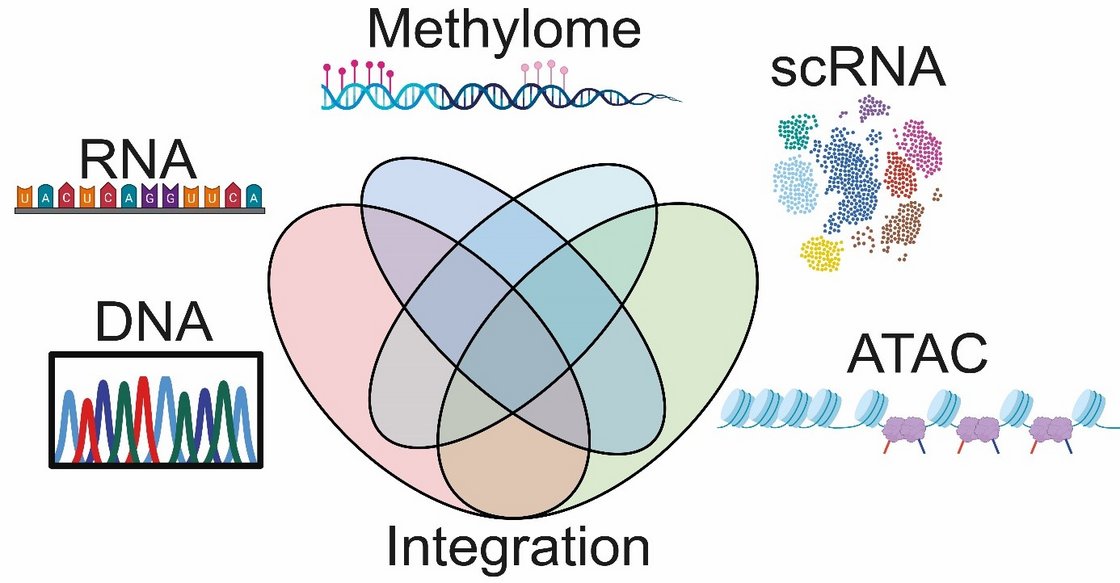Bioinformatics/computational biology pipeline
A wide range of modern technologies allow in-depth dissection of biological processes on multiple levels such as global high-throughput sequencing analysis. While data generated from such methods are extensive and provide a major resource in gaining new findings, their handling requires special dedication and focus. To achieve the most efficient extraction of meaningful data, in cooperation with our collaboration partners we established several analysis pipelines, including those for:
- Exome/Methylome/ATAC/RNA sequencing data
- Proteomic data
- Single-cell RNA sequencing (scRNAseq) data
- Integration of different scRNAseq data sets
- Processing of large patient data sets including genomic and transcriptional data

Collaboration partners:
Prof. Dr. Ivan G. Costa
Institute of Computational Genomics, University Hospital RWTH Aachen
Dr. Medhanie Mulaw
Central Unit Single Cell Sequencing, Medical Faculty, Ulm University, Ulm, Germany
Research topics
Only recently we published our work investigating the relevance of ONECUT1 in developing diabetes. Using pluripotent stem cell-based knockout models we could dig into the mechanism on how ONECUT1 shapes chromatin profiles and gene regulatory networks during embryonic development in pancreatic progenitor cells. (Heller, …, Kleger. 2021, Communications Biology; Philippi, …, Kleger. 2021, Nature Medicine)

Many of our projects focus on embryonic disorders and critical developmental events. Recently, we performed a thorough single-cell RNA-based characterization of pluripotent stem cell-derived pancreatic progenitors to understand their trilineage potential. By receptor-ligand analysis in different subpopulations of PPs we could demonstrate the importance of cellular crosstalk for forward programming and lineage entry as well as similarity to different cell populations in the fetal pancreas. (Merz, …, Kleger. 2023, Theranostics, in press)




